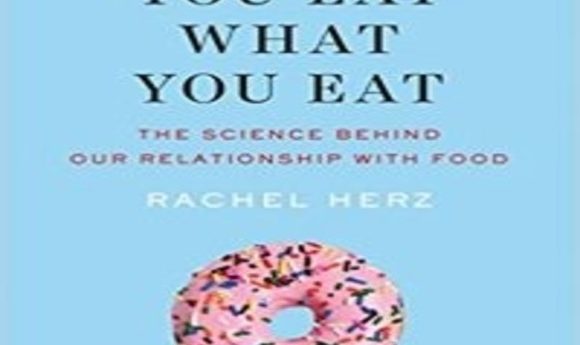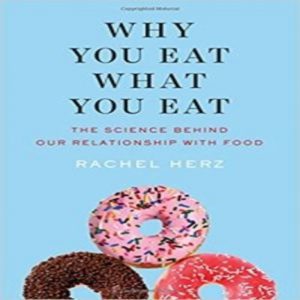Why do you eat what you eat

Does food affect your mood? Why are certain foods delectable for some and detestable for others? And how does seeing food influence how it tastes? Answers to foodie questions like these are revealed in a new book.

The newly released book, “Why you eat what you eat,” explores the fascinating science behind our experience of food, unveiling the sometimes unexpected influencers of our relationship with food from taste to psychology. Released in the US in December, the book was an instant Amazon best-seller, much to the delight of author Rachel Herz. As a neuroscientist specializing in the human sense of smell (and a bit of a foodie), Herz is well-qualified to spell out the surprising science about the food we thought we knew so well.
Beginning with the senses, Herz takes the reader on an eyebrow raising journey through myth-busting experiments and intriguing moments in history, revealing unexpected study results and counterintuitive factoids along the way. For instance, did you know that whale vomit and extracts from the anal gland of the civet cat are prized constituents of fine perfume?
But Herz also uses numerous narratives to bring scientific studies to life. For example, one story highlights how a dislike of food has a severe emotional impact. “It’s always assumed that everyone is overly enamored with food, but there are actually people who have an aversion to it,” said Herz.
“Our sense of smell is often relegated to the dustbin of the senses,” said Herz, but in her book, she exposed how central smell is to our sense of flavor.
Herz enjoyed gathering these stories about people’s experiences with food, but she didn’t expect some of the wacky psychological phenomenon that her research unearthed. “Most people love talking about food,” she said. “I was shocked by things like how bringing your own bag to the grocery store influences your behavior.” The second half of the book is dedicated to these interesting psychological and social factors that influence food consumption.
Herz, who continues to be actively involved in research collaborations at several universities in the US, has been “thrilled” by the reviews her book has received so far. And inspired by a journalist’s suggestion, she now plans on putting all of the fun facts on the senses from her book together in another book for kids. She hopes that providing children access to the facts will help counteract the rising levels of childhood obesity and metabolic disorders in America.
Will understanding our experience of food really lead to changes in behavior? Based on how all this reading about food made me reach for the cookie jar, I’m not so sure.